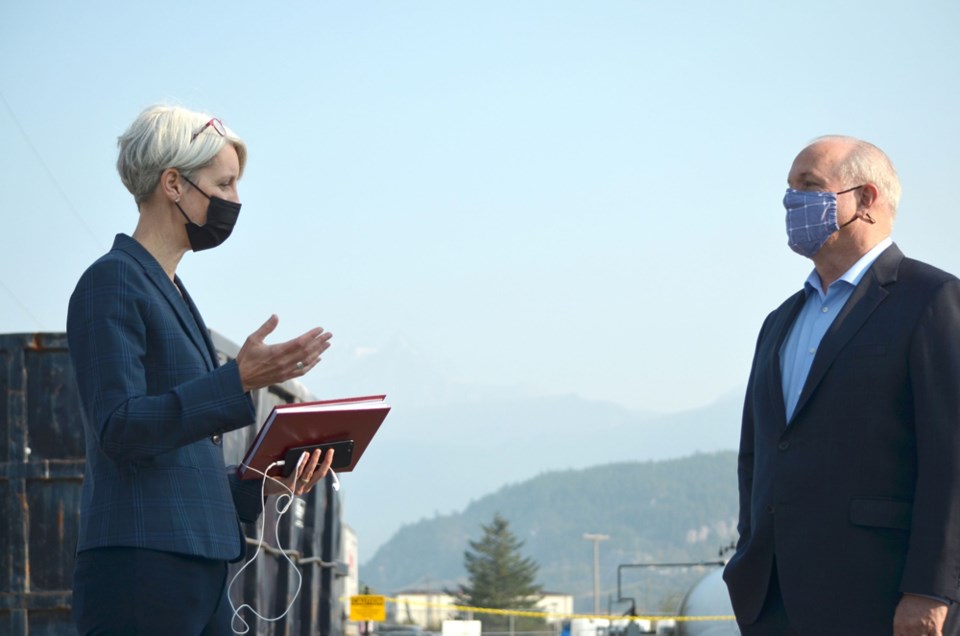While promising to flatten carbon emissions, NDP leader John Horgan touched on an issue very near and dear to many people in town — regional transportation.
Horgan was speaking at a press conference on the Squamish Oceanfront lands on Oct. 2. As part of this campaign stop, he was touting a promise to pass legislation that would slash B.C.'s fossil fuel emissions to net-zero by 2050.
With the world-famous Carbon Engineering facility as a backdrop, Horgan said that it was crucial that the province work to cut down on its carbon footprint.
He said the company's carbon-capture technology — which sucks CO2 from the air — would play a role in a cleaner B.C.
At the same time, many advocates for regional transit have said adding buses or trains from Vancouver to the Sea to Sky is an obvious solution for reducing emissions. Less single-occupant vehicles and less highway traffic on Highway 99 would reduce the amount of fumes sputtered into the air.
During the press conference, Horgan said he hadn't had a recent conversation with local leaders regarding regional transit, but said that under his administration, then-transportation minister Claire Trevena had been pursuing the matter.
"We want to expand public transit, BC Transit, to every corner of the province," he said.
"Having public transit here in the corridor, from Squamish to Whistler... is critically important to reducing single-occupancy vehicles, and we want to make sure we do that. There's going to be a cost to that. I understand from local representatives that the community's prepared to pick up their part, and, if that's the case, I know that British Columbia, my party and a re-elected BC NDP government will focus on transit here in the region."
He did not, however, set a firm date for when or if that would happen.
Mayor Karen Elliott was present in the audience, and afterward, she and Horgan exchanged a few words.
After her conversation with the NDP leader, she told The Chief that she believes the NDP recognizes the importance of regional transit, but local governments still need to keep pushing for it to happen.
"I think we're still going to have to keep advocating [to] the province to find another funding model for regional transit." said Elliott.
"I think he did recognize the importance to this region and how hard we've been advocating for it. So we'll keep the pressure on."
She said she didn't hear a firm commitment, but said Horgan appeared to understand the issue needed to be addressed sooner rather than later.
Cost-sharing has been a frequent stumbling block in the negotiations for regional transit.
Local governments have previously said that they have limited means to raise funds for a service, and that their last proposal was rejected by the province.
Their proposal was based on the current provincial-municipal cost-sharing formula for local transit, ridership fares, property tax and a motor fuel tax of 2.5 cents to help offset the costs of initiating a regional transit service.
BC Transit's site says that currently the province funds 46.69% of its conventional transit systems and 66.69% of custom systems.
Conventional systems include standard buses and other vehicles, while custom systems often include services for people with disabilities.
Under this arrangement, municipalities typically pay their share from property taxes and fares.




